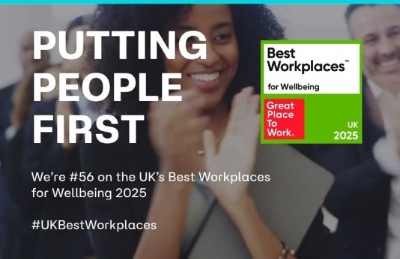The nature of recruitment in Britain is changing. It has always been tricky, but even more so during the last year with remote working forcing the move to near-ubiquitous virtual hiring. According to HR News , this has meant 57% of hiring managers think that hires they have made in the past year have not worked out to some extent.
Britain has just come out of the worst economic downturn in 300 years, marked by a 9.9% fall in GDP last year. The economy is expected to expand by 7.25% in 2021, with extra government spending helping to limit job losses.
This has meant a significant uptick in the demand for staff, as well as increased pay. According to a new survey by professional services firm KPMG and the Recruitment & Employment Confederation (REC), the Midlands recorded by far the sharpest increase in billings for temp jobs, with the softest growth in London.
It found that in the private sector, permanent vacancies increased at their quickest pace in nearly three years, while growth in short-term positions was highest since September 2018. The steepest expansions in permanent vacancies were seen in Nursing/Medical/Care and IT & Computing. Retail was the only sector to register a decline.
Data from other industry bodies and firms support this robust growth. Domino's Pizza is hiring 5,000 cooks and delivery drivers, as staff who joined during the pandemic head back to their old jobs.
Recently, UK Hospitality said there was a shortfall of about 188,000 workers in the hospitality sector, or a 9% vacancy rate, with the shortage of front-of-house staff and chefs being particularly acute. Figures suggest that roughly one in ten staff hospitality workers left the industry in the past year, as a result of the pandemic and Brexit.
With the average cost of hiring a new employee reaching £3,000 according to Glassdoor, recruitment is something businesses cannot afford to get wrong. That’s why with hospitality re-opening, UK Hospitality announced it will be running sessions in partnership with Jobcentre Plus work coaches in every region of England, as well as across Scotland and Wales.
HR News’ research found that 37% of UK businesses say that Brexit is a big influence on their hiring and skills strategy. Costs of hiring from the EU include sponsorship licensing, immigration and government fees, as well as use of the NHS, which could cost an employer up to £10,000 over five years.
With these hiring headaches, it is easy for other parameters to drift, such as ensuring you are hiring a diverse team to reflect your customers. At Bridge of Hope, we spend a lot of time talking to inclusive employers for whom Diversity & Inclusion is foremost in their thinking. They tell us that while focusing on addressing some of the macro challenges highlighted above, BAME communities, those with disabilities and other underrepresented communities sometimes get overlooked.
The “2021: Mind the trust gap” report surveyed 500 senior hiring managers and recruiters in the UK and found 39% are having difficulties with candidate differentiation, while an overwhelming 77% see bias or a lack of diversity in their current hiring processes as a significant to moderate challenge.
We see businesses tackling these challenges head-on. Bupa UK’s Workplace Wellbeing Census 2021, a study of more than 4,000 employees across 13 key sectors, conducted by YouGov, found UK organisations have made marked efforts to safeguard the wellbeing of their workforces over the past 12 months. One in seven (14%) introduced policies to ensure diversity and inclusion. 68% of those with a disability reported that working from home over the last year has removed accessibility issues previously faced when going to a physical workplace every day.
There is an untapped talent pool out there that Bridge of Hope helps employers access. Underrepresentation affects a range of communities, whether it is based on gender, race, physical or mental capability, criminal record or other factors. As the economy enjoys its fastest growth in more than 70 years, the nature of recruitment is changing. If you are a job-seeker or an inclusive employer, this is good news.




